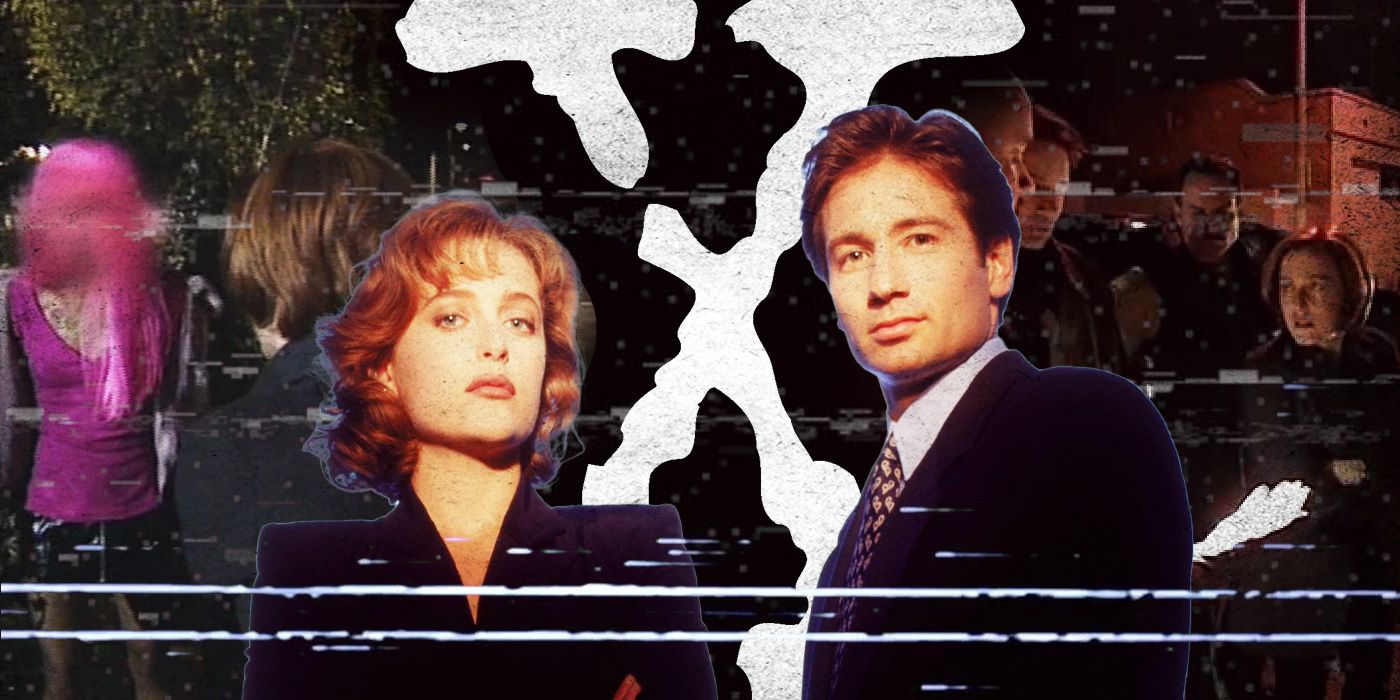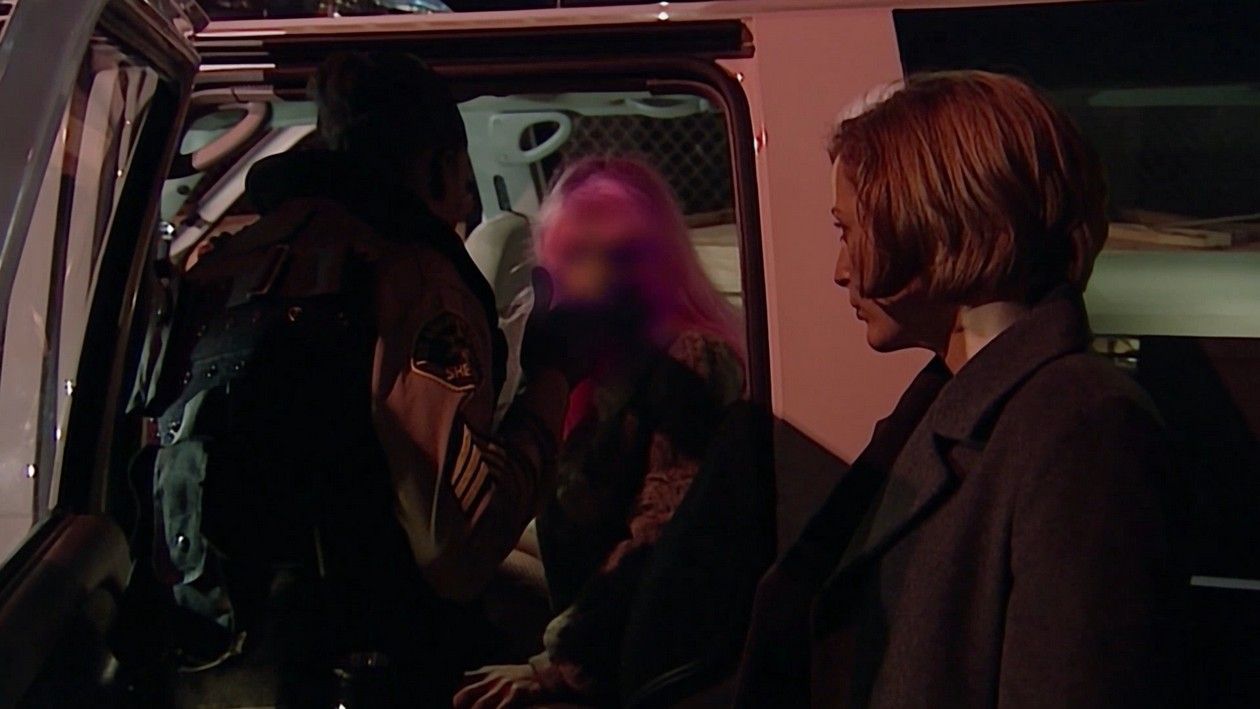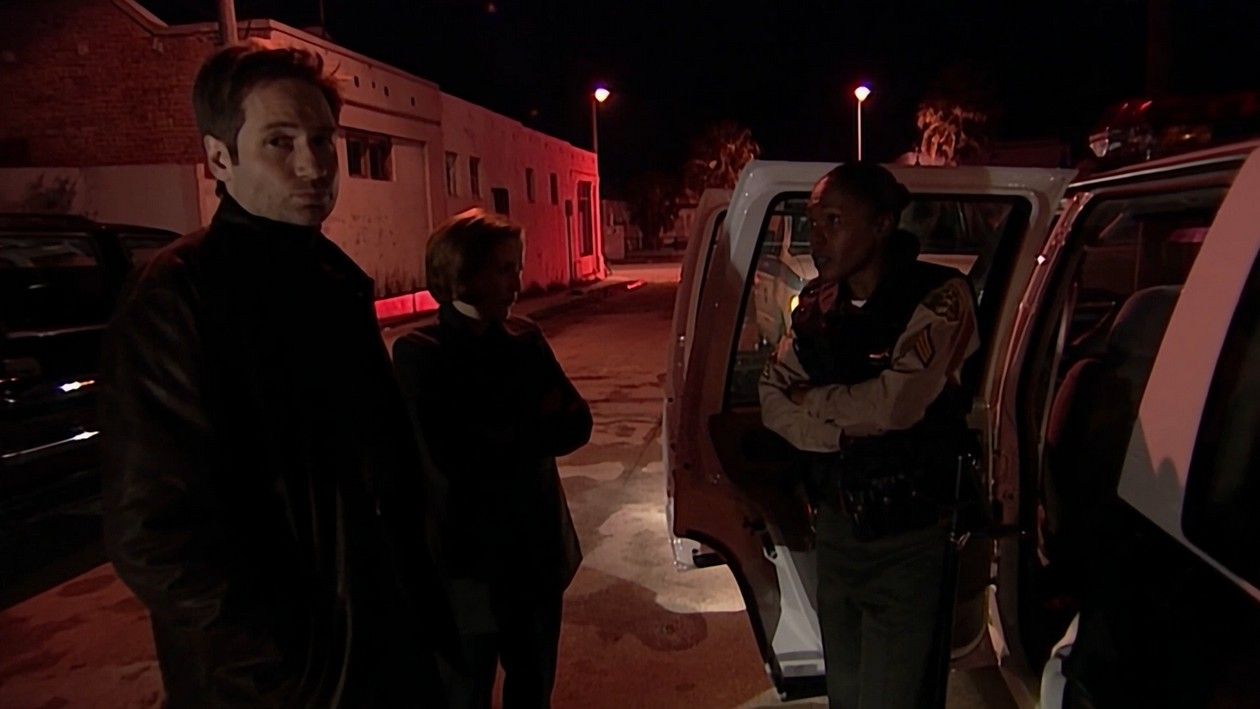The X-Files was a daring show for many reasons, among them its willingness to sometimes surprise its audience with unique, unpredictable episodes. “The Post-Modern Prometheus,” for example, is a Frankenstein adaptation that imitates the style of classic black-and-white horror films and prominently features the music of Cher. “Home” is a disturbing, gory horror episode with distinct Texas Chain Saw Massacre vibes. “Triangle” is a time-travel episode filled with some crafty camerawork and long takes, à la Alfred Hitchcock’s Rope. The show’s final season even features an episode with the unpronounceable title “Rm9sbG93ZXJz” (which translates to "Followers" in Base64 code) that contains almost no dialogue and a fleet of creepy drones.
Time and time again, The X-Files creator Chris Carter and his talented writing team (including Breaking Bad creator and “X-Cops” writer Vince Gilligan) defied convention and delivered some groundbreaking experimental television. One episode, however, stands above the rest as the most radical departure from the show’s usual style and sensibilities.
Season 7’s “X-Cops” is a crossover episode (of sorts) that finds FBI agents Fox Mulder and Dana Scully pursuing an alleged monster through the streets of Los Angeles as they, in turn, are being pursued by the Cops TV show camera crew. The episode plays as if it’s actually an episode of Cops, even using the signature title credits and “Bad Boys” theme song in the intro.
For a scripted TV series to imitate the style of reality TV, a dramatic overhaul of both the production and post-production processes is required, but The X-Files team was up for the challenge. Vince Gilligan rode along with the L.A. County Sheriff’s department in preparation for writing the episode. Director Michael Watkins called in a few favors in order to use real sheriff’s deputies as extras. All scenes were shot on videotape (rather than film) by a Cops camera operator with an actual news camera. A Cops editor was also brought in to create the trademark blur over the face of an actor portraying an unreleased bystander.
Watkins remarked that the episode was “a huge change from our usual look” and “took a lot of courage.” Indeed, suddenly adopting a new style for a single episode could’ve been a disaster. Had the episode, from a production standpoint, done a poor job imitating the style of Cops, it would have been impossible for the audience to buy the faux crossover concept. On the other hand, had the episode imitated Cops too well, it could bewilder the audience and make them confused as to exactly what show they were watching. The network had a legitimate fear that viewers would think The X-Files had been preempted by Cops and thus change the channel. In some cases, this actually did happen. Supporting actor Curtis C. Jackson (who plays Edy in the episode) said his friends who tuned in to see his performance thought they were mistakenly watching Cops and turned off their TVs.
The episode’s premise also introduces a unique challenge for the show’s writers that could change how the audience sees the two main characters: how would Mulder and Scully react to the presence of a camera crew, and what do their reactions say about them as characters? For Mulder, a camera is an opportunity to prove to the world that supernatural beings do in fact exist. For Scully, a camera is just a giant spotlight that embarrasses and irritates her. The only time she slightly warms up to the presence of a camera is when she is in her element conducting an autopsy. This seems to indicate that, even after all these years, Scully is still a medical doctor at heart. Her interest in the paranormal is mostly just a means to the end of unraveling some bizarre and puzzling scientific mysteries.
How Mulder and Scully react to the Cops cameras is, in a sense, them communicating directly to the viewers of The X-Files. It’s a fourth-wall-breaking, postmodern moment in which Mulder and Scully are telling us how they would like us to think of them. Mulder wants us to see him as a crusader. Scully wants us to go away and let her investigate some abnormal dead bodies. It would’ve been easy for this sort of winking self-referential aspect of “X-Cops” to come across as unintentionally funny and cringe-inducing. But Vince Gilligan and company manage to make the episode both intentionally hilarious and insightful.
When faced with both the logistical and creative challenges that the premise of “X-Cops” entailed, the X-Files team knocked it out of the park. They provided some insight into the psychology of their main characters, and they seamlessly blended a narrative show’s style with that of a reality TV show. It’s a truly daring experiment and a remarkable feat.
It’s not an accident that “X-Cops” aired during Season 7, which is the last truly great season of The X-Files. The creative and logistical risks in “X-Cops” would not be permissible or even thinkable for a show struggling to get renewed or boost its ratings or achieve critical success. This is an episode in which the creative team, sensing that the show’s heyday was coming to an end, essentially said “screw it” and rolled the dice. The crew’s willingness to stretch the limits of their capabilities to the max is what makes “X-Cops” the most daring episode in The X-Files history.



